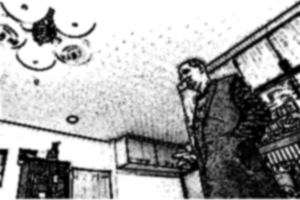 It is a cold February morning in West Tokyo and we are standing outside the house of Jake Adelstein, author and former journalist for the Yomiuri Shinbun. The only problem? Adelstein isn’t here. J SELECT’s photographer calls him. “It’s the first lesson for any journalist: check your e-mails every morning,” he tells her. It turns out he’s tied up in some urgent business and can’t make our appointment. The interview is rescheduled for the next day and we realize that the author of Tokyo Vice: An American Reporter on the Police Beat in Japan has just shared some of his hard-earned wisdom with us.
It is a cold February morning in West Tokyo and we are standing outside the house of Jake Adelstein, author and former journalist for the Yomiuri Shinbun. The only problem? Adelstein isn’t here. J SELECT’s photographer calls him. “It’s the first lesson for any journalist: check your e-mails every morning,” he tells her. It turns out he’s tied up in some urgent business and can’t make our appointment. The interview is rescheduled for the next day and we realize that the author of Tokyo Vice: An American Reporter on the Police Beat in Japan has just shared some of his hard-earned wisdom with us.
In his book, Adelstein documents his experiences as a crime reporter for the Yomiuri and how getting one of the biggest scoops of the decade attracted threats to both him and his friends from the yakuza group called the Goto-gumi.
This story revealed that the yakuza group’s leader, Tadamasa Goto, had visited the United States for a liver transplant in 2001 under a deal he had made with U.S. authorities. Before its release, Adelstein discovered that Goto knew about his scoop, and had to be put under police protection.
The threat was real and, Adelstein says, not to be taken lightly. “There is a phrase in Japanese ‘katagi ni meiwaku kakenai,’ which basically means ‘we don’t bother ordinary citizens,’ but the Goto-gumi was a group that rose to power in part because it broke the rules. Goto preferred to have people attacked in front of their families because that sent a message.”
“Once I got to the point where I realized all my phone records had been handed over to the other side by a corrupt cop, I found myself in an unpleasant situation. Then you have to think ‘how do I look out not only for myself, but also for all my friends?’ At that point I had to think how all my relationships would be interpreted. Then I had to call people and say, ‘Because you are my friend, you may be in danger, but there is absolutely nothing I can do for you.'”
In Tokyo Vice, Adelstein documents his run-in with the yakuza boss and other adventures from his 12-year career as a Japanese-language crime reporter for the Yomiuri Shinbun. The book has been met with critical acclaim. “The reaction to the book has been really good, the reviews have been outstanding. I expected people to find the content interesting but I didn’t expect people to say nice things about the writing. It’s also selling well; it’s on its third printing.”
The book is also set for release in Australia. “They changed the name there from An American Reporter on the Police Beat in Japan to A Western Reporter on the Police Beat in Japan, because, I guess, people don’t like Americans.”
In the book, readers learn not only about Adelstein’s work as a reporter, but also about life as a foreigner in Japan, the moral dilemmas he faced and his immense sense of loss as events took a turn for the worse.
“My target audience for the book started off as more for journalists, but I think the people that read it are interested in journalism, Japan, true crime, the yakuza, and I think there is a section that is interested in it as part of the memoir genre,” Adelstein says. “I was writing the book for people who are interested in Japanese society and journalism. But it seems to have had a much broader appeal.”
The writer, smoking his trademark Indonesian scented cigarettes, tells J SELECT his favorite chapters in the book are actually not about crime.
“I really like the manuals chapter (which documents Japan’s fascination with how-to books), because it seems to capture this Japanese obsession that there is a perfect way to do anything,” the writer says. “And if you know the perfect way to do it, everything falls into place. Once you have learned that, then you are allowed to veer off course a little bit and experiment. It applies to everything, from having sex to taking a bath.”
The other chapter he particularly likes tells the story of a colleague at work who committed suicide after being told by the Yomiuri that she would never write again. “A lot of companies will not fire you, but they will make life so unpleasant for you that you quit,” Adelstein says of Japanese corporate culture.
In that chapter, the author explains the word “yarusenai,” which has no direct translation, but describes a lingering grief and regret so strong it will always be with you. For Adelstein, failure to open an e-mail from his friend sent a couple of days before she killed herself brought on that feeling. This brings into relief the poignancy of our missed encounter with Adelstein and the significance of his instructions to always read your e-mails. “I wrote that chapter in about eight hours and it was quite cathartic,” he says. “People ask me why I didn’t open the e-mail (after she passed away), but knowing what was in it won’t make anything better.”
Adelstein is currently working on a Japanese translation of the book, but has had problems finding a publisher. “A Japan agency is shopping the book around, but certain words like Soka Gakkai and Burning Productions, things that touch upon Japanese taboos, are scaring people away.” In the book, Adelstein reveals some of the connections between yakuza and the entertainment industry. He also refers to a National Police Agency report that alleges that Soka Gakkai, a lay-Buddhist religion that preaches peace, and the Goto-gumi have worked together.
 “Right now there are three publishers that are interested in the book, but I don’t particularly want to redact it. Maybe if we take a black marker through the parts that are controversial, so that people know that if it is blacked out, they can check what was written in the English book. It’s not a money issue, it would just be really nice if the Sekiguchi family (close friends) had a copy of the book that they could read.”
“Right now there are three publishers that are interested in the book, but I don’t particularly want to redact it. Maybe if we take a black marker through the parts that are controversial, so that people know that if it is blacked out, they can check what was written in the English book. It’s not a money issue, it would just be really nice if the Sekiguchi family (close friends) had a copy of the book that they could read.”
Before publishing his article on Goto in The Washington Post, Adelstein had attempted to sell it to Japanese language newspapers. It was rejected by all the publications he pitched it to. The writer says that he has since learned that many of the rejections had their origins in a fear of the Goto-gumi. “I had one weekly magazine that only last year admitted that they were scared to run the story on Goto for what would happen to them,” he says.
The consequences of investigating the organization have been real for Adelstein. His family is now living in the United States because he feels they are safer there, and Adelstein suffers from a lack of sleep and a heart condition brought on by stress. “If it was safe to bring the family back to Japan, I would. The fact is all my revenue comes out of here so I have no choice. I have heart issues so I cannot afford to live in the United States. Leaving here is not an option, at least not until the U.S. gets health care.”
He also notes that the stress of his work has led him to change the way he behaves around friends. “I have serious problems making close relationships with people because I now become overprotective. If I have a woman friend now I am really generous and protective to the point of being overbearing. I have an irrational fear now that if I get close to people I am in some way putting them in danger.”
Adelstein also believes that a close friend who was helping him in an investigation was killed by the Goto-gumi, a tragedy that clearly still hurts. “The most painful things about tragedies are the what ifs. I replay some of those in my mind. It’s natural to think about that, you question why you did things, what your motivation was. It’s difficult.”
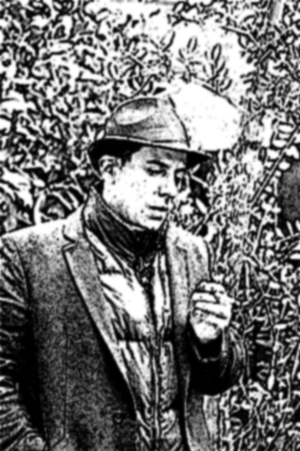 Adelstein clearly paid a huge price over the years for choosing to be an investigative journalist. But asked whether he wishes he had opted to take his other job offer at Sony rather than going to the Yomiuri, he says definitely not. “I have two regrets. I regret asking my friend to help me because she was unstable and getting involved with drugs. You should always know the limits of your sources. The other is that I loved her, not in a romantic way, and I think she really wanted to hear those words.”
Adelstein clearly paid a huge price over the years for choosing to be an investigative journalist. But asked whether he wishes he had opted to take his other job offer at Sony rather than going to the Yomiuri, he says definitely not. “I have two regrets. I regret asking my friend to help me because she was unstable and getting involved with drugs. You should always know the limits of your sources. The other is that I loved her, not in a romantic way, and I think she really wanted to hear those words.”
The writer also says losing friends due to threats from the yakuza has hurt him a lot. “Maybe one of the most stressful things about all of this is that I lost some really good friends because of what happened. They are angry because I put them in danger, and I don’t blame them. One person is still so angry that they won’t talk to me, and in a way that is even worse than losing somebody, because there is that tantalizing possibility that you could fix it.”
Goto, meanwhile, was forced out of the yakuza and has since repented for his crimes and is now working to help people in Asia. “When Goto got kicked out he reportedly said, ‘That f**king Jew reporter, I wanna kill him.’ It got back to me and I thought, well, at least he knows [who I am]. This is the time I like having a byline. Now he seems to be repentant, and I suppose anybody can have a change of heart. How does it work out like this, though? I’m supposed to be the good guy and yet he seems to be fine. It seems unfair.”
While still working as an investigative journalist, Adelstein is now also involved in the Polaris Project, an organization that looks to combat human trafficking and child pornography in Japan. “Some of what Polaris does is try to put pressure on the Japanese government to ban child pornography. It’s still OK to own it, making this one of the only countries other than Russia where you can own child pornography for personal pleasure. ”
That fact causes challenges for the police, who often find it difficult to get warrants to search suspected offenders’ houses, because in Japan it is legal to download child pornography, and to possess it.
“Every year the FBI gives hundreds of tips to Japan on who is downloading child pornography, but as long as they are just downloading it, it is not a crime here,” the writer says.
Having worked with the police for around two decades, Adelstein has come to realize that some of the problems the police have in this country are due to the law. “Cops don’t make the law, they can only enforce the laws as they exist.” He adds that he doubts the Democratic Party of Japan will look to outlaw child pornography anytime soon.
As well as Polaris and the translation, Adelstein is also working on two more books, both of which will document the dealings and history of Tokyo’s underworld. Though he may focus on the darker aspects of life here, he’s wary of painting a negative image of his adopted home. “The thing about my job is I see the worst aspects of the country. Please don’t take this as Japan at large.”
Story by Richard Smart
From J SELECT Magazine, May 2010





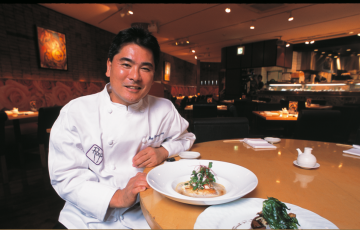

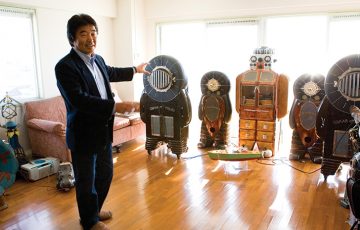

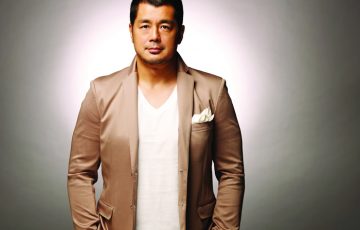


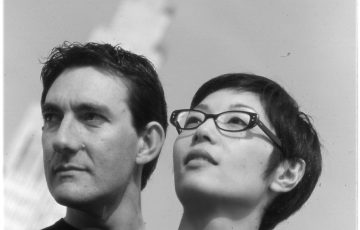


Recent Comments